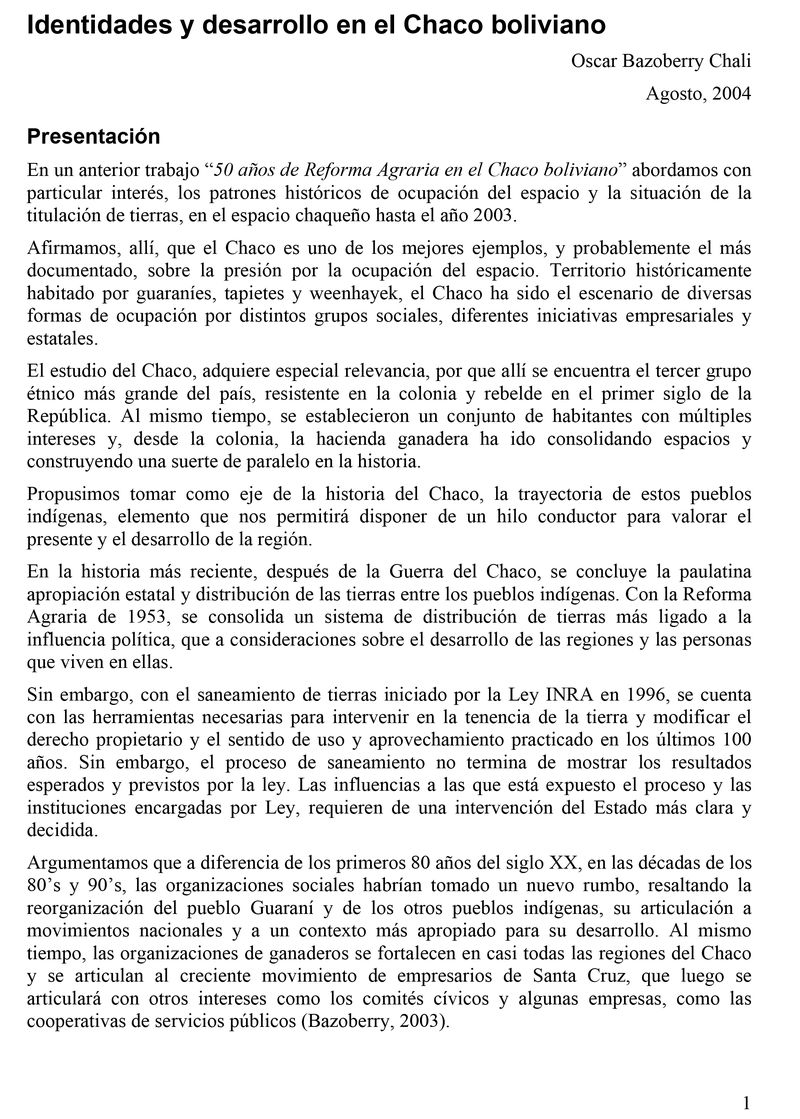Identidades y desarrollo en el Chaco boliviano
El estudio del Chaco, adquiere especial relevancia, por que allí se encuentra el tercer grupo étnico más grande del país, resistente en la colonia y rebelde en el primer siglo de la República. Al mismo tiempo, se establecieron un conjunto de habitantes con múltiples intereses y, desde la colonia, la hacienda ganadera ha ido consolidando espacios y construyendo una suerte de paralelo en la historia.



